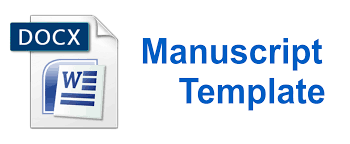Analisis Pemikiran K.H. Ahmad Dahlan Tentang Pendidikan Islam
Keywords:
Islamic Education Thought, K.H. Ahmad DahlanAbstract
This research aims to analyze the writings and works of K.H. Ahmad Dahlan in the field of Islamic education. The thesis also considers the historical and social context in which K.H. Ahmad Dahlan lived to understand the influence and relevance of his thoughts in the context of the modern era. The researcher employs the library research method, utilizing relevant secondary data sources related to K.H. Ahmad Dahlan's concepts of Islamic education. The results of the study indicate that K.H. Ahmad Dahlan implemented the concept of tajdid (renewal) in Islamic education by integrating secular and religious education, rejecting their dichotomization. The goal is to shape an insan kamil (perfect human). In the Humanism curriculum, education focuses on the personal development of learners. The content involves the Qur'an, Hadith, reading, writing, arithmetic, earth sciences, Javanese language, Dutch language, practical skills, and health. The frequently used methods are role modeling (uswah) and 'students ask, teachers answer' (cooperative learning). K.H. Ahmad Dahlan relies on various media such as the home environment, violin, surroundings, and people as learning tools. Although evaluations are not documented in writing, K.H. Ahmad Dahlan consistently conducts functional evaluations. The concept of Islamic education according to K.H. Ahmad Dahlan remains relevant to the current educational context. The goals, principles, characteristics, and curriculum applied by K.H. Ahmad Dahlan align with the current independent curriculum. Both concepts prioritize shaping the character of an insan kamil and the personal development of learners. The alignment between K.H. Ahmad Dahlan's vision and the independent curriculum reflects the continuity of his thoughts and contributions in designing holistic and relevant Islamic education for the times.
Downloads
References
Arikunto, S. (2012). Dasar-dasar Evaluasi Pendidikan. Jakarta: Bumi Aksara.
Kurniasih, I. (2021). Kumpas Tuntas Asesmen Nasional (AKM). Yogyakarta: Kata Pena.
Moleong, L. J. (2011). Metodologi Penelitian Kualtatif. Bandung: PT. Remaja Rosdakarya.
Nurmawati, Y. d. (2022). Analisis Penilaian Karakter BerbasisAsesmen Kompetensi Madrasah Indonesia (AKMI). Jurnal Manajemen Pendidikan Islam, 3(4), 331-342.
Ramadhani, M. A. (2021). Prosedur Operasional Standar Penyelenggara Asesmen Kompetensi Madrasah Indonesia (AKMI) Tahun 2021. Jakarta: Direktur Jendral Pendidikan Islam.
Sugiyono. (2017). Metode Penelitian Kuantitatif, Kualitatif, dan R&D. Bandung : Alfabeta.
Trihidayati, M. I. (2020). SIAP AKM. Bogor: Pustaka Andromedia.







